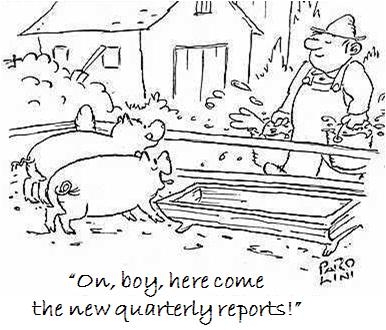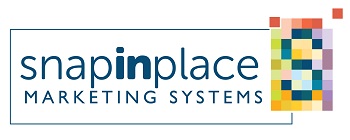Quality is never an accident; it is always the result of high intention, sincere effort, intelligent direction and skillful execution; it represents the wise choice of many alternatives.
— William A. Foster
 There are data quality objectives for everyone. Google indicates that the term “data quality” is used in 135,000 global searches every month. It’s not Taylor Swift with 55 million or Microsoft with 101 million.
There are data quality objectives for everyone. Google indicates that the term “data quality” is used in 135,000 global searches every month. It’s not Taylor Swift with 55 million or Microsoft with 101 million.
But it represents a fairly decent amount of interest for a rather mundane topic. The term “data quality tools”, on the other hand, accounts for only 2,900 searches or 2% of all literal “data quality” searches.
If you are a company that provides data quality management solutions, like those that remove duplicate contacts from mailing lists and reformat thousands of records to make them pretty to print on mailing labels, or if you do more heavy lifting work, such as parsing a full name into first and last names or extracting intelligence about a person’s role in a company based on his business title, then these search figures from Google are not insignificant information to you.
The wide disparity between those who are looking for data quality information vs. those who are looking for data cleansing tools can be scary, especially if you’re a business that wants to launch a hosted data quality management service in the “new tradition” of cloud computing or Software-as-a-Service (SaaS).
With these figures in hand, you’d naturally ask yourself a very serious question.
Is There No Demand For Information On How To Achieve Data Quality Objectives?
As we’ve seen there is much demand for information on data quality and little for data quality tools. But what kind of data quality objectives can we discern from these Google results?
It’s clear that when it comes to data quality objectives not only is all demand not the same in terms of organic keyword searches but also not all demand is greater than the supply of information that is available for these keyword searches. Let me more clearly illustrate.
 Recently I ran an analysis to determine how monetizable the phrase “data quality” might be (searched without the quote marks) relative to the supply of information available for that phrase.
Recently I ran an analysis to determine how monetizable the phrase “data quality” might be (searched without the quote marks) relative to the supply of information available for that phrase.
The result was that there is nearly twice as much information offered on data quality per se than there is demand for.
Therefore, although the demand for information on data quality is very high in the Web and it might be enough to build a small website to attempt to meet it, a small business focused on delivering a solution based specifically on this term has too much competition in the Web market.
The chances of monetization will be low, because so many other sites are already providing information on “data quality” per se.
Consider, by contrast, the phrase “what is data quality” (again, without the quote marks). The demand is 35 times greater than the supply for this phrase. That’s a great prospect. But this is because, according to my algorithm, there are only 244 demand points running against only 7 supply points for this phrase.
This much of a spread between demand and supply is enough to get an online business to rank in the top of the search engine results pages (SERP’s) for Google, Yahoo and Bing, if the business optimizes a web page with this particular phrase. But this much demand score is only enough to publish 1 page in a website and not enough to wrap an entire site around it, because 244 demand points does not represent a lot of traffic.
From where I stand, a business wanting some serious monetization potential that could argue its ability to meet a range of data quality objectives for a solid client base will need at least 1,000 demand points per page to get it.
Such a business would need several high demand pages to build a website around which to promote a SaaS offering, that might not rely initially on a direct sales workforce to bring clients in for it.
In short, it would need a keyword-defined niche on data quality that would meet the needs of people looking to fulfill specific data quality objectives.
What Then Is The Intent Of A “Data Quality” Search? What Data Quality Objectives Are People Looking To Achieve?
I would classify the intent of people looking for information about data quality across 5 areas. Call it their data quality objectives grouped into categories:
- Corporate Performance Management: Business Intelligence & Analytics
- Data Governance: Data Standards and Validation, Risk Management and Compliance
- Data Integration: Data Modeling, Master Data Management, ETL
- Data Maintenance: Data Profiling and Data Monitoring
- Data Warehouse Appliances: Storage and Archiving
Now, why is the search for tools to solve the data quality issue so disproportionately small to the term “data quality” — 2% of all searches? The reason why tools is such a small proportion of the overall search volume is because, when it comes to data quality objectives, the main goal of 98% of searches is not to learn about data quality technology per se.
The solution to the data quality “problem” is three-fold: people, process, tools. When it comes to technology, those who need to apply it, who are both highly skilled and very few inside a company, know where to get the technology. So the questions remaining are not technological in nature. They are people and process oriented.
Seen from this point of view, few people “get” how to use the tools or why they’re needed to achieve data quality. Instead these searchers are barely getting to understand what processes need to be in place to improve data quality and what people must be involved to ensure the work can get done. Tools don’t factor in yet in their list of data quality objectives.
Only at the end of all this learning does anyone start thinking of tools as part of a list of data quality objectives. The data quality objectives most sought are not in tools but in people and process.
How Do You Target People Who Are Looking For Data Quality Solutions?
A business titles driven strategy won’t work well for a boutique data quality service provider, unless it has deep pockets for lots of marketing, as it will have to educate these “titles” on the benefits of a) using tools and b) adopting the boutique company as part of their data quality management processes, because what the agency offers them is the people and some of the tools to fix the data quality problem.
 But these titles might not even know what processes may already be in place at their own companies to control data quality and how they could be enhanced by the boutique data quality services.
But these titles might not even know what processes may already be in place at their own companies to control data quality and how they could be enhanced by the boutique data quality services.
So the learning curve is very steep for these folks, especially if they’re in marketing, finance or sales. For anyone who is already well learned about all this — and those people are in IT — their first reaction to a boutique agency offering data quality services will be skepticism: “Why use a SaaS to meet our data quality objectives?” And if you’re not a SaaS with an on-premise track record like Informatica, then the question will be “Why use an agency at all?”
That is all fine and dandy, except that, unless the boutique agency is introduced by a business group, its fit will be seen also from an entirely technical and systemwide perspective — from the integrator’s perspective. It will be a rather critical perspective too, given the agency’s boutique business model, i.e. it not being a professional services business model.
But the business side at the client company is the side that needs to be educated to climb this steep learning curve. It might have the funding to pay for a SaaS subscription. Be assured, however, it very likely does not have the relationship with IT, which is why it outsources so much away from IT.
So to penetrate the account the boutique data quality agency has to educate these titles within the business side of the organization. They’re precisely the titles that are resistant to learning technological knowledge.
The agency is in a quandary.
But haven’t these titles worked for the agency before? Yes, in fact they have. But that is because the easier titles to educate have been historically those that already understood that it was expensive to an operation in marketing, sales or finance to have duplicate names in a mailing list because of returned mail waste.
That thinking naturally moved into email lists with the advent of email marketing, until marketing automation SaaS providers created a few years ago built-in deduping functions based on email address right into their service offerings. At that point deduping stopped being a value-add proposition for a boutique data quality agencies.
With this shifting in traditional data quality objectives by such clients, these agencies now need a new marketing strategy that approaches the business from an entirely different perspective than list scrubbing.
They need to ask new questions that focus on a new aspect of the client’s need for data quality.
What If I Ask, ‘Who Are The People Who Know That To Have, For Example, Good Business Intelligence They Also Need Good Data?
This is a good question because it focuses in the example on a business need for intelligence rather than literally on data quality.
 Good data is invisible data. Nobody notices good data, since it is expected. Everyone notices bad data, because it is not expected.
Good data is invisible data. Nobody notices good data, since it is expected. Everyone notices bad data, because it is not expected.
So a boutique agency is most successful when invisible in plain sight, just like electricity. Nobody notices electricity until there’s a power outage.
Therefore, if you’re a data quality control boutique agency, then look for companies that keep having “data outages”. Those are the businesses that you can sell your “power generators” to.
Consider that there is a direct correlation between expanding the use of analytics and the emphasis on enhancing data quality. Why?
It’s for the very same reason that I’ve just now given you. Analytics is like the plasma TV screen in the house and a metrics dashboard is like that plasma screen during Super Bowl Sunday.
If power keeps going out every time someone is about to make a touchdown, the owner of that plasma screen is finally not going to be calling the retailer who sold him the TV screen but the power company! He will “get it” that it’s not the TV that’s a problem but the electricity company.
That’s exactly the type of situation that you want to enter into. You want to arrive to such a house and say, “You know what? Wouldn’t you have loved to have had a back-up alternative so that, if the power grid went down, your own power generator would have kicked right into action and you wouldn’t have missed all those great Super Bowl plays? That’s the kind of security and peace of mind that I’m selling you.”
I suggest that what you need today as a data quality management boutique agency seeking to meet the new data quality objectives of companies willing to subscribe to your data quality control SaaS offering are businesses that currently are:
- Not proactive but reactive in fixing data quality problems
- Whose senior management’s level of awareness and involvement regarding problems with data is already high
- But whose scope in fixing the problem is not yet enterprisewide
- Yet there is a desire for broad breadth and deep depth of business-side involvement in fixing this problem
- And, last but foremost, the initiative to get all this improvement activity going lies with the business side and not with IT
When you look at the 5 areas of data quality interest (the 5 groups of data quality objectives) that I listed for you above, which one seems to scream for this kind of involvement from a company such as yours?
That’s one place where to begin the analysis of how to position yourself in the best light for that data quality niche before you launch your SaaS offering in the cloud. After all, data quality control must come from somewhere.
Return to SaaS Data Quality Control from Data Quality Objectives
